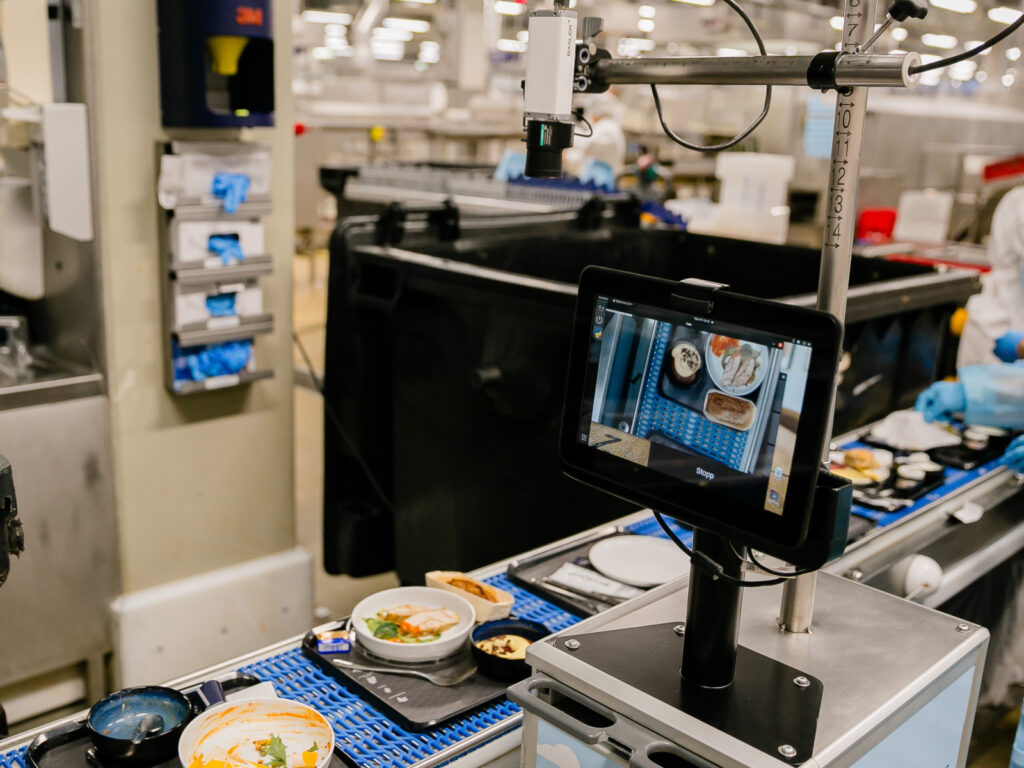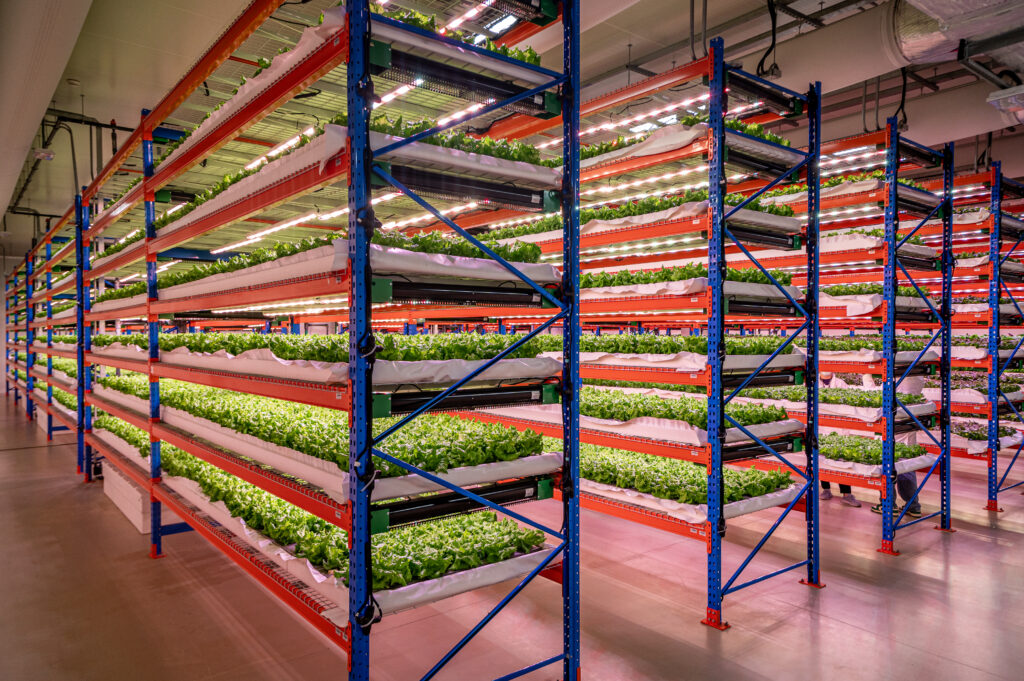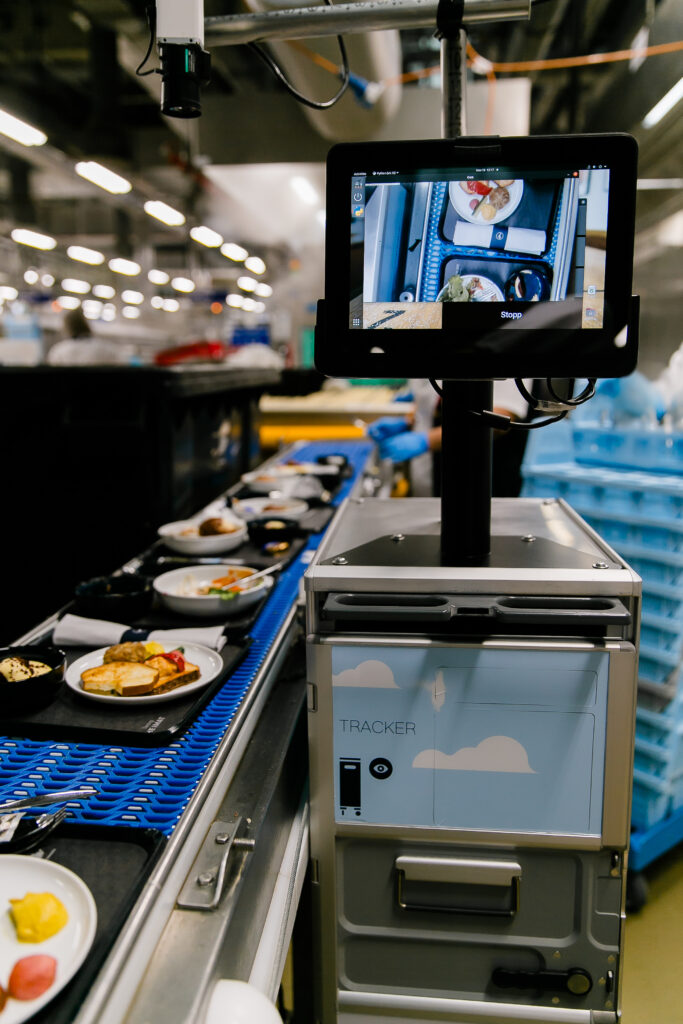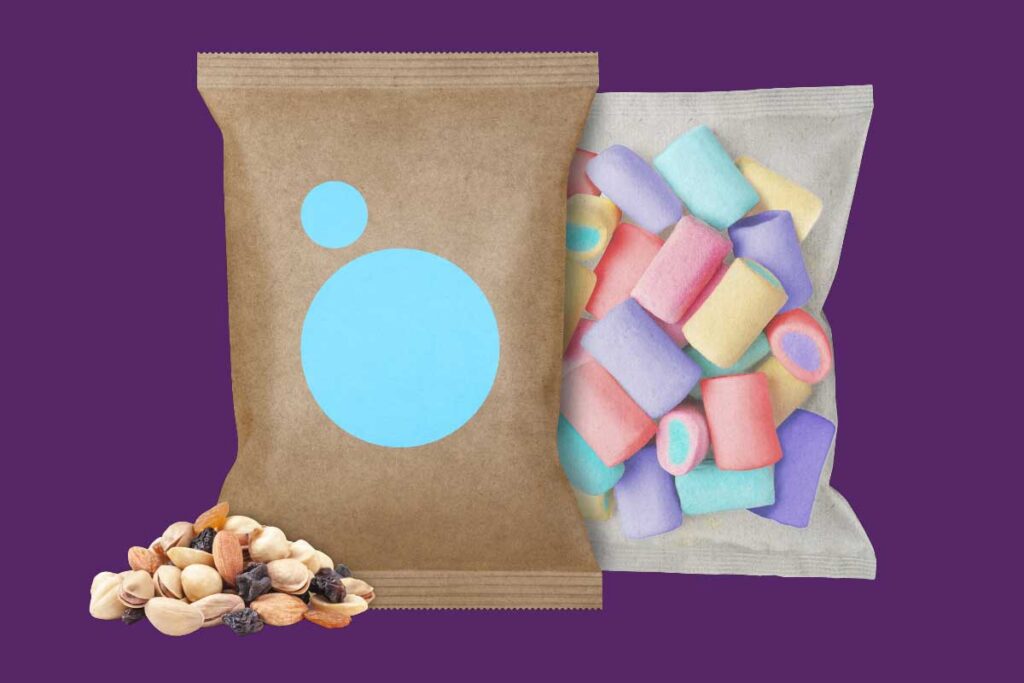Redefining Sustainability: How AI is Helping Airlines Go Green
Share

Whether it’s mastering hydroponic farming, meticulously tracking food waste or helping to create new packaging materials, many airlines and suppliers are relying on artificial intelligence (AI) to improve their sustainability credentials. In this article, APEX Insights takes a look at some of the most exciting ways airlines are using AI to reduce emissions when it comes to in-flight service.
AI Enables More Efficient Food Production
Back in 2018, APEX Insights covered the news regarding Emirates Flight Catering’s (EKFC) plans to open the world’s largest indoor vertical farm in partnership with Crop One Holdings. After challenges due to the pandemic, the farm finally opened in July 2022 and now supplies EKFC’s 100+ airline customers with leafy greens including lettuces, arugula and spinach.
The food is grown using a closed-loop system that requires 95% less water than conventional agriculture, because when the water vaporizes it is recovered and recycled into the system, saving an estimated 250 million litres of water each year compared to outdoor traditional farming. It also uses no herbicides or pesticides.

In February 2024, EKFC announced it had fully acquired the vertical farm, known as Emirates Bustanica, making it a UAE-owned company. Since the outset, Emirates Bustanica says it has relied on “machine learning, artificial intelligence, and other patented technologies.”
And Emirates isn’t the only airline taking advantage of this kind of produce. Singapore Airlines is partnered with US-based AeroFarms where, according to a 2019 article in Runway Girl Network, “algorithms determine seeding patterns and density, while computers monitor sensors and even adjust the room’s air pressure.”
AI Helps to Optimize Onboard Catering
Last week, Lufthansa Group announced the use of “Tray Tracker,” a solution that “uses generative AI and computer vision to analyze the on-board food consumption right after a flight.” The aim is to assess meal portions and to reduce the possibility of overloading, where too much food is prepared.
A Lufthansa Group LinkedIn post explained, “After a flight, all trays move along a conveyor belt as part of the dishwashing process at our caterer and the Tray Tracker camera captures images that are later analyzed by a computer vision model and classified as partially eaten, fully eaten or untouched.” The flight route, travel class, and meal concept are also included in the analysis.

KLM introduced a similar solution in 2023 dubbed “Trays AI,” which prevents overloading by predicting the number of passengers that will be on board each flight based on historical data. The airline said during a three-month trial, the system would have been able to waste 63% less food.
Down under, a collaboration between Air New Zealand and LSG that photographed in-flight meals on their return from the aircraft gave the airline fascinating insights on what worked or didn’t work with its in-flight menu, including that “customers weren’t all that enamoured with the blue cheese and beetroot hummus, so we’ve been able to change that,” said Air New Zealand CEO Greg Foran.
The technology provides a double-win, simultaneously giving airlines the opportunity to reduce food waste and improve passenger satisfaction.
AI Helps to Produce Sustainable Packaging
Hamburg-based One.five made a splash at the World Travel Catering & Onboard Services Expo (WTCE) in its home city this year with its promise to deliver AI-powered sustainable packaging solutions.
An interview with Pictet explains how the company uses AI to help create packaging in as little as 100 days: “The process is […] expedited thanks to a custom-built AI to generate new material designs while crunching the many variables that impact the cost and viability of packaging in order to quickly assess what will deliver.”

At WTCE, One.five announced a range of packaging solutions to help the airline, travel, and hospitality industries meet increasingly stringent environmental regulations. One.five and product manufacturer Krott have already begun offering travel snacks for prominent airlines packaged in sustainable materials, which will take to the skies later this year.
Co-founder Claire Hae-Min Gusko said, “The travel industry has long struggled with the painfully slow pace of new product development, which can sometimes take upwards of 18-24 months from concept to market. This extended timeline has severely hampered the sector’s ability to respond to rapidly changing regulations and consumer demands for sustainable solutions. With our new products, we’re not just offering alternatives to plastic – we are offering the first commercially deployed AI-generated solution.”
AI: The Opportunities are Endless
Artificial intelligence’s myriad possible applications during the production, supply chain and service of in-flight food and beverages range from ensuring health and safety to quality control and predictive analytics, to name just a few. But each have two qualities in common – they are likely to help airlines reduce their emissions and improve operational efficiency.


